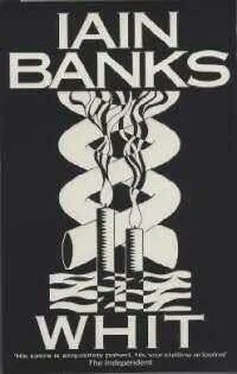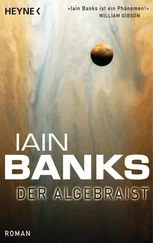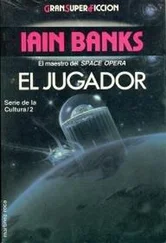My Grandfather had taken to dressing entirely in black by then and whenever he left the farm at Luskentyre he wore a black, wide-brimmed hat. With him dressed so, and boasting long (and now entirely white) hair and bushy white beard, and the two sisters clad in their best, most colourful saris, they must have presented a singular sight as they attended the court. There was some press interest; our Founder abhorred such attention, but there was little he could do about it, and of course the fact that he refused to talk to people on the Stornoway Gazette or a journalist sent from Glasgow from the Daily Dispatch only piqued their interest (and given the rumours about our Founder and his two dusky consorts, they were already pretty piqued).
My Grandfather managed to avoid most of the publicity and discovered that a wide-brimmed hat was particularly effective at shielding him from photographs - especially as the cameras of the time were bulky, awkward items which are hard to handle while trying to take a snap of somebody striding purposefully down a narrow street, usually in the rain. Nevertheless, while he managed to avoid claiming to be married to the two sisters, and succeeded in side-stepping insinuations about the exact nature of his relationship with the women, he was less reluctant to express himself when it came to his new-found faith, and some of the things he said - helpfully enhanced by the mysterious process of metamorphosis that tends to occur between reality and newsprint - must have struck a chord with a couple in Edinburgh called Cecil and Gertrude Fossil, though of course my Grandfather didn't know this at the time.
Aasni and Zhobelia were called as witnesses but were unable (unwilling, actually) to provide any help; their English and Gaelic - both of which they were reasonably at home in - seemed to deteriorate to the point of almost total incomprehensibility the instant they crossed the threshold of the Court. When an interpreter was called for, the only people capable of helping proved to be other members of the Asis family, which might or might not have been acceptable to the defence, but in the end didn't matter because the family simply refused to speak or listen to the two brazenly shameless, marriage-wrecking hussies who had once been their daughters, and no threat of being charged with contempt of court was going to change their minds.
Faced with such intransigence in a case which was, in the end, only concerned with the destruction of a factory nobody who mattered had really cared about, the exasperated sheriff thought the better of pressing the point; Aasni and Zhobelia were excused from providing evidence.
Salvador, who had never met the rest of the Asis family, took its rejection of its daughters more personally than they did themselves, and swore never to enter the store they had opened in Stornoway or, later, the branch in Tarbert. Somehow this ban became an article of faith and extended - as the Asis family's commercial interests expanded and shops opened in Portree, Oban and Inverness - to all retail premises, presumably just to be on the safe side.
The trial ended; the cowed, murmuring, Sunday-best-dressed men accused of the dastardly drunken factory incendiarism were found neither guilty nor innocent but were told that the charges against them had been found Not Proven, a uniquely Scottish verdict that has exactly the same legal force as Not Guilty but is often popularly taken to mean, We think you did it but we're not certain, and which has the twin merits both of introducing into the usually monochrome guilty/innocent, decent folk/criminal classes, good/bad world of the law the concept of quantum uncertainty, and leaving a lingering cloud of public dubiety and suspicion over the accused just so they didn't get too cocky in future.
Grandfather and the sisters returned to the farm at Luskentyre, Salvador to work alongside Mr McIlone with the animals on the farm and continue reading, studying and writing the Orthography , and the sisters to continue driving round the isles in their converted library van, making bad deals and not much of a living. Come the first summer my Grandfather spent on the islands, that of 1949, the two sisters found themselves doing something else together, as their bellies started to swell. Salvador - while suffused with virile pride, of course - was already wondering how they were going to cope with two extra mouths to feed when the Fossils arrived.
Cecil (pronounced See-sill, apparently) and Gertie Possil were an eccentric couple of independent means who wiled away their otherwise relatively pointless lives by joining different sects, cults and churches as though they were trying to collect the set. Cecil was a tall, awkward man who had been unable to take part in the War because he only possessed one eye, the other one having been hooked out when he was a child when his father - a keen angler - was teaching him to cast; a traumatic incident one might have thought would put the young Cecil off fishing, and possibly fish, for life, but which in fact had had exactly the opposite effect. When Cecil disappeared on one of his frequent fishing trips in the Highlands or to the chalk streams of southern England, Gertie would spend the time attending seances and talking to mystics.
They had read something about Grandfather and his strange new faith - including his emphasis on the importance of the 29th of February - in their daily newspaper on the first of March that year, and realised that that was the day that would have been the 29th of February had 1949 been a leap year . Convinced that this meant something entirely profound, they had determined to make a pilgrimage to Luskentyre later that year. (Though it has to be said that Cecil later confessed he had also been thinking of the opportunities for sporting fishing to be had in the Hebrides, had he and his wife proved unwelcome at or been disillusioned with Grandfather's proto-church.)
Salvador was wary of the Fossils at first, though Mr McIlone seemed happy to have them stay, and the sisters appeared politely indifferent. Cecil and Gertie arrived on Harris in a large pre-war shooting break (a kind of estate car or station wagon which Sister Jess assures me a lady called Everidge once memorably termed a half-timbered car) packed with Mesopotamian scatter cushions, Afghan rugs, Ceylonese onyx incense holders and all the other essentials required for prolonged survival on a modest island farm.
They also brought with them at least twenty different types of tea, which they kept in airtight Javanese cinerary urns. This greatly endeared them to my Grandfather, and was probably the difference between them being trusted and accepted when they first appeared or being treated with such suspicion they felt obliged to leave. Blithely bestowing the Luskentyre farm with batiks, lacquer screens and silver candelabra, the Fossils were able to bring an air of luxury to the place that at first appealed to all concerned, including my Grandfather. Until then the farm had been a place of creaking iron beds, smoky paraffin lamps and bare floorboards relieved by off-cuts of linoleum. By the time the Fossils were finished all of those were still there but by all accounts they didn't seem to define the place any more.
The Fossils stayed initially for two months, providing the farm with its veneer of opulence, Grandfather with all the speciality teas, pens and paper he desired, and the locals with both a rich new vein of gossip and a lurid new example to brandish in front of children and weak-minded adults whenever a paradigm of hedonistic immorality and heathen decadence was required.
I think they also gave our Founder something else: an outside perspective, a calibratory check, a chance to measure his revelations, thoughts, insights and future teachings against the experience of people who'd pretty well played the field as far as odd new sects were concerned, and quite assuredly knew their way round a decent cult when they saw one.
Читать дальше












